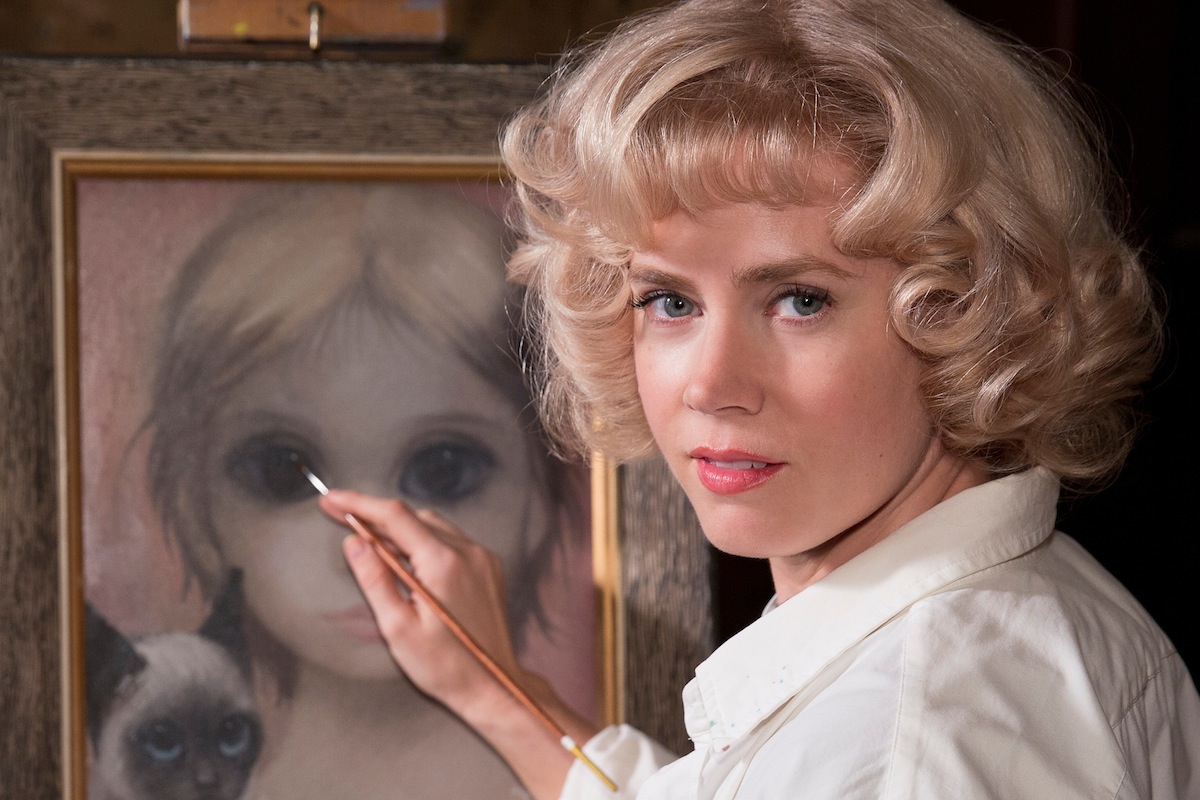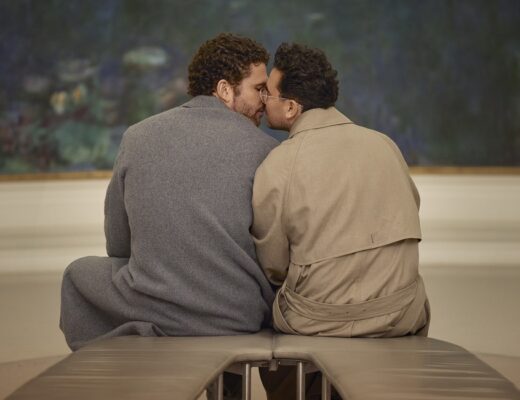During the 1960s, painter Margaret Keane’s artwork, largely depicting children with outlandishly large eyes, was sold under the name of her husband, Walter, who apparently exhibited all manner of unpleasant behavior in his attempts to coerce his wife into complying with his ruse. She eventually left him and successfully sued for the rights to her work. It’s a pretty straightforward story, seemingly tailor-made for a tidy Hollywood triumph-over-adversity biopic. The disappointment of Tim Burton’s Big Eyes, then, is that the film is just that and, sadly, nothing more.
Amy Adams plays Margaret as little more than a blank slate. When Walter begins taking credit for her work, she at first registers some displeasure, but just a scene or two later, she is producing painting after painting in a locked room hidden from even her own daughter. As the years go by, Walter becomes increasingly demanding, egomaniacal and abusive, but Margaret just keeps on cranking out canvases. Why she chooses to go along with this scheme is never articulated beyond her general timidity, which she promptly gets over after finally leaving Walter and becoming a Jehovah’s Witness, just in time for the triumphant self-actualizing courtroom vindication that dominates the third act. As for Walter, Burton has allowed Christoph Waltz to indulge in his worst impulses. His performance is all broad gestures and Cheshire-cat grinning, turning him into such an obviously slimy, sociopathic caricature that it beggars belief that anyone, even someone as recessive in personality as Margaret, would fall for him.
a rote ticking-off of check boxes on the way to a numbingly generic biopic
Burton, too, falls back on his old crutches, photographing everything with his standard-issue slightly wide-angle, symmetrical framings of either garishly dressed people or pastel-coated kitschy domesticity. It’s another candy-coated cartoon reality, one that isn’t so much at odds with the based-on-a-true-story plot as it is disappointingly routine for this filmmaker. Possibly he craved a simpler approach after the overstuffed decadence of Dark Shadows or the all green-screen Alice in Wonderland, but even those films displayed a manic energy frequently identified with Burton’s work but sorely lacking here.
Big Eyes barely functions as a narrative beyond its basic spine. Keane paints pictures, people like them, her husband is mean, she leaves and gets rightfully famous, The End. Needless digressions pepper the film, such as a framing device concerning a reporter (Danny Huston) who inexplicably narrates the film, or an outlandish moment in which Walter publicly confronts a cantankerous critic (Terence Stamp). Worse than such detours, though, Burton and screenwriters Scott Alexander and Larry Karaszewski fail to answer basic questions about these people. What inspires Margaret to paint? Why does she acquiesce to Walter’s plan? What does her later religious conversion mean to her beyond a confidence boost? These should be vital starting points for any characterization, but based on what we see on screen, it appears as if no one ever bothered to ask such questions in the first place. It’s difficult to believe that this film is from the same creative forces as the great Ed Wood 20 years ago. With that film in mind, Burton would seem to be the perfect director for an idiosyncratic portrait of an esoteric, little-understood artist such as Margaret Keane, but all he can muster with Big Eyes is a rote ticking-off of check boxes on the way to a numbingly generic biopic.








No Comments